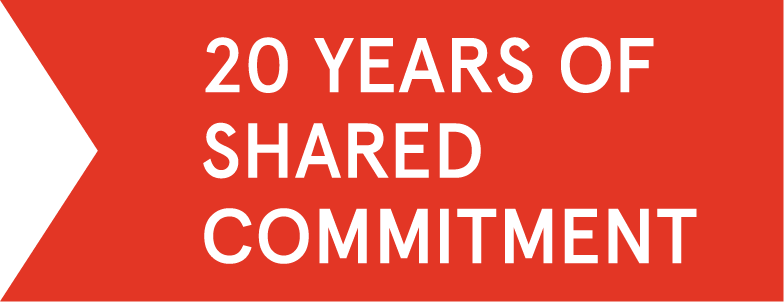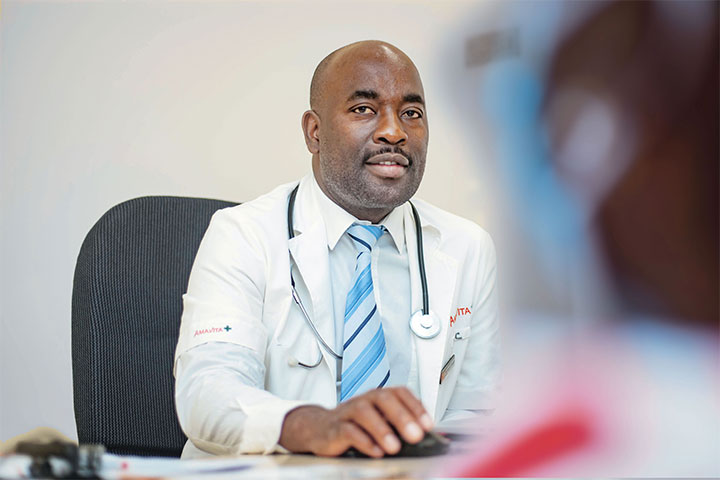The Newlands Clinic Training Centre had a turbulent year in 2021. What challenges did you face?
The government introduced restrictions depending on the current situation to control the Covid-19 pandemic. Courses on site were not possible. That led to the cancellation of almost half of our HIV Management Courses at Newlands Clinic Training Centre. Even when restrictions were lifted, practical training was not entirely possible, as we wanted to make sure that our participants were safe. This also meant we had to limit the number of participants.
Nevertheless, you managed to train more than 1,500 health care workers in 2021. Compared with previous years this marks a big difference. How did you do that?
Necessity is the mother of invention. In autumn 2020 we introduced online training addressing specific issues in HIV management. Last year, we intensified our online courses even after we resumed training on site. This resulted in large numbers of people participating. The response to our online courses across the nation was surprising. The need for knowledge in Zimbabwe is huge.
What are your conclusions and lessons learned after a full year of online training?
The major lesson is that online learning is feasible even in a setting like ours. It complements learning on site at Newlands Clinic, but cannot replace it, because it comes with disadvantages. Our on-site course is not just didactic. You get to see our nurses in action and experience the care of patients. That we cannot provide in a virtual course. Another problem is the availability of the internet. Sometimes participants were not able to log in.
You have also been expanding in terms of offering decentralised training in the districts. Why is that important?
We want to make sure that patients from remote areas have access to quality HIV/Aids treatment. But because of the massive brain drain in the country, it’s difficult for participants from remote areas to leave their workplaces. This prompted the Ministry of Health and Child Care to ask us to capacitate specific districts in Zimbabwe. We introduced courses at their facilities to address key issues in HIV management. Us going to train in their environment means fully taking into account their work conditions.
One highlight of last year was cooperation with the Chitungwiza Central Hospital in Harare. How did that come to pass?
In discussion with the MoHCC, we want to establish centres of excellence in HIV management at various institutions. We then collaborated with Chitungwiza Central Hospital. The hospital is near our clinic and is a teaching hospital. This presents the unique opportunity to also train doctors and nurses in HIV care before they go to the districts. The collaboration has been well received and the feedback is encouraging. But it’s still in its infancy.
You have been appointed as a member of the council at the public Midland States University. What does this mean to you and for the clinic?
For me it’s a milestone. Serving one’s country is exciting. What makes it very interesting is that Midlands State University has just begun building a medical school. We have already started discussions about where Newlands Clinic Training Centre could then train their medical students in HIV management. These are exciting opportunities that are coming by virtue of my new position.
In terms of training, what are you focusing on this year?
We want to strengthen our online presence so that participants can log in at any time they choose and go through our course. We also want to strengthen our decentralised courses. The need to train people in the peripheries remains. We would love this year to go to the back of beyond to cover the corners of our nation and capacitate health care workers. This is how we contribute to the strengthening of the public health care system.


